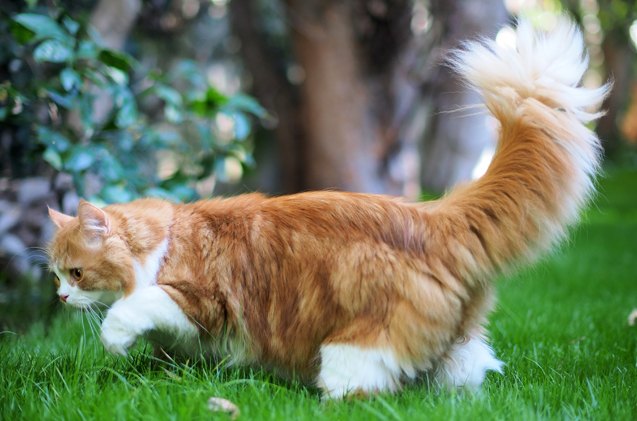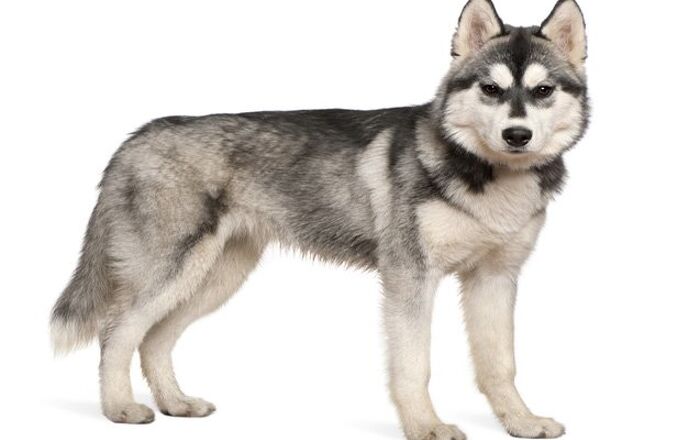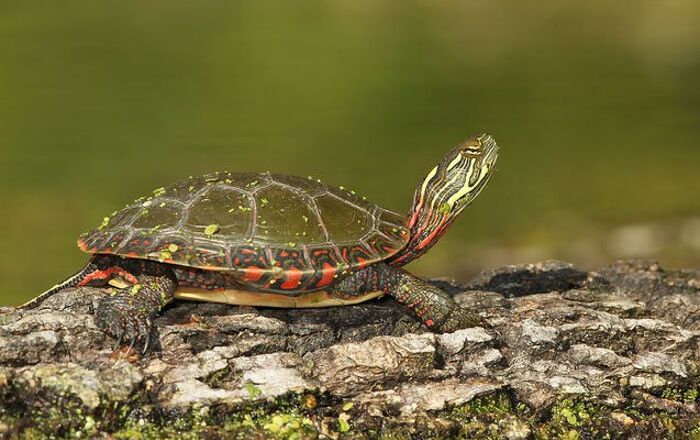
A developmental disorder, Feline Cerebellar Hypoplasia affects the way a cat walks. Here’s what you should know about the illness and what can be done.
If you’ve ever seen a cat, whether online, in a shelter, or on TV, who can’t quite walk straight, you may have already heard of feline cerebellar hypoplasia. But what is this condition, and is it something that a cat can live with?
The Basics: What It Is and What Causes It
Cerebellar hypoplasia is a developmental disorder that can affect cats. It occurs when the cerebellum, which is the part of the brain responsible for controlling coordination, balance, and fine motor skills, doesn’t develop as it should. Thankfully, feline cerebellar hypoplasia isn’t contagious, nor is it painful.
Related:7 Common Cat Health Problems
This condition commonly afflicts kittens after a pregnant cat is infected with the panleukopenia virus. The infection is passed from the mother to the unborn kittens, and the virus ends up attacking cells that rapidly divide. It is during the last few weeks of a cat’s pregnancy, as well as the first weeks following a kitten’s birth, that the cerebellum experiences a period of fast development and growth. So, as you probably already guessed, that leaves the area susceptible to the virus’ attack. But this doesn’t mean that every kitten in a litter will be affected. In some cases, only one kitten might be impacted, while in other cases, an entire litter could be afflicted with cerebellar hypoplasia.
Other potential causes include genetic factors, trauma, exposure to toxins, and nutritional deficiencies. For example, if a cat is malnourished while she is pregnant, cerebellar hypoplasia might develop in her kittens. The condition could also occur if a kitten endures trauma to the brain while the cerebellum is still developing.
The Symptoms: What It Looks Like
The symptoms associated with cerebellar hypoplasia might be apparent at birth or a short period of time after birth. However, symptoms will typically become even more obvious when a kitten starts to stand and walk. This is usually around the age of six weeks.
Related:What Is Feline Distemper?
The more the cerebellum was impacted, the more severe the symptoms will be. The severity of symptoms could also depend upon the stage of development during which the kitten was affected.
Common symptoms of feline cerebellar hypoplasia include:
Diagnosis and Treatment: The Options Available
Unfortunately, there isn’t a lab test that can detect cerebellar hypoplasia. Providing your veterinarian with a list of symptoms and a health history on your pet will be helpful during a physical exam. Your vet may also order a complete blood count, blood chemical profile, urinalysis, and electrolyte panel to determine if other causes might be the reason for your pet’s symptoms. And to check the size of the cerebellum (a kitten with cerebellar hypoplasia will have a smaller cerebellum), your vet may order an MRI.
Also unfortunate is the fact that there is no treatment available for feline cerebellar hypoplasia, as it is the result of poor brain development. The disorder will be permanent, but cats can live a normal life and learn to adapt to getting around with this condition. Plus, following the infant stage, a kitten typically won’t exhibit signs that the disease is progressing or worsening.
If your cat has cerebellar hypoplasia, what you can do is make adjustments to your home to help prevent accidents and injuries. You can have your pet neutered or spayed, and you can also have other cats in your household. However, a cat with cerebellar hypoplasia should be kept indoors at all times. Work with your vet to determine the severity of your pet’s symptoms and to figure out what measures can be taken to ensure your kitty can live a happy and comfortable life.
CH Cats: Special Needs Pets That Are Full of Love
In the end, kitties with cerebellar hypoplasia are just special needs pets that are full of love and deserving of homes. So if you’re willing to adopt a kitten or adult cat with CH, consider checking shelters and foster networks to find your new furry best friend.














